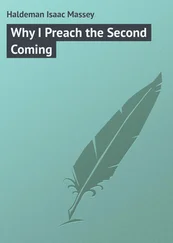My sweaty hand is writing sentences on the board for copying. Days of woozy heat have followed what is now known as the “Deluge of Dikeledi.” It was three days ago and already we’re lying about it. It rained for twelve hours. No, twenty-six. Theofilus had to go around and rescue the goats with a canoe.
1. The atom bomb is a frightful thing.
2. My father is an Elk.
3. Will you please iron my shirt after you finish the dishes?
4. My sister has a Mexican jumping bean.
Pohamba’s shadow looms across the threshold of my classroom.
“May I have a word, Teacher Kaplansk?”
“Certainly, Teacher Pohamba.”
I go out to the porchway. “What is it? I’ve got another fifty minutes to murder.”
Pohamba cups his hand to my ear, murmurs, “She’s back.”
“Who?”
“Che Guevara.”
“What?”
“In a skirt.”
And then she’s there in his eyeballs, strutting across his undrunk morning pupils.
“Mavala Shikongo?”
“In the exposed flesh.”
“Wow.”
“There’s more.”
“What?”
“She’s with a child.”
“She’s pregnant?”
“Not with. With a . Note the article, English teacher. He’s about a year old, maybe a year and six months.”
“Wait. She didn’t look pregnant.”
“Kaplansk! Think. She’s been gone less than a month. It was born already, see? She went somewhere and picked it up.”
I take a step back. “Oh. Hey, how much cologne have you got on? I’m getting dizzy.”
“Not cologne. Eau de toilette. Stag. I’ll get you a bottle.”
“How’d she get here? I didn’t hear any car.”
“Walked.”
“With a baby she walked?”
“All she needs now is a basket on her head. A modern girl, our soldier.”
“Where’s she now?”
“With the Commandant.”
I look down the porchway, toward the principal’s office. The mustard suitcase is in the courtyard, standing on the well-watered grass where we took our school pictures. On promotion day, the principal would stand on that green patch and hand out pens. He called it Ireland.
By this time, all my learners have their heads out the windows. Pohamba glares them back to their chairs. Then he whistles to one of them, the boy closest to the door, Magnus Axahoes. The boy comes out and stands before us. He’s nervous. He comes up to just about Pohamba’s thigh.
“Go to the principal and get the toilet key,” Pohamba says.
“Yes, Teacher.”
“And come back and tell us what you see in the office.”
“Yes, Teacher.”
But Magnus doesn’t move. He stands there looking up at Pohamba.
“Go.”
Magnus bites his lip. Then, after a moment, he flips around and sprints down the porchway.
“Who’s he?”
“Magnus. Never says a word. Mostly he looks at his feet. He writes well, though. He wrote a composition about a baboon who becomes a police officer.”
“They’re already baboons.”
“This one drove a flying donkey cart and rescued dogs.”
“Rescued from what?”
“I don’t know. Just rescued.”
“Make him talk. You should hit him.”
“No, quiet’s better. I might start hitting them for asking questions.”
Across the courtyard, from Obadiah’s classroom, the boys are reciting geography. “Labrador, Lagos, Lancashire. Now you try. Labrador, Lagos, Lancashire .”
Usually when the principal speaks in his office we can hear him across the farm, but today we hear only Obadiah and his boys. That mustard suitcase stands like a sentry. Magnus comes back, holding the key, which is attached to a wire, which is coiled around a brick. He stands there, but he doesn’t say anything.
“Well,” Pohamba says.
“Excuse? Teacher?”
“Tell us what you saw in the office.”
“Mistress Shikongo is there, Teacher. With Master Sir.”
“And what are they doing?”
“Excuse?”
Pohamba nearly shouts: “What are they talking about, you little fool?”
“Not talking.”
“Not talking?”
“Yes, Teacher.”
“So what are they doing? Sitting and looking at each other?”
“No, Teacher. Master Sir is looking at Mistress Shikongo. Mistress Shikongo is looking nowhere.”
“What do you mean nowhere?”
“Not here.”
“What?” Pohamba raises his hand. The boy flinches, but his eyes remain steady — as if he’s trying to show us what not here looks like. He cradles the brick to his chest. We wait, listen for a moment, as if we can hear all this looking and not looking. From Obadiah’s class: “Now again, angels, try it again. Lausanne.”
“Looo Zaaaaan!”
“Brilliant! Just as the Swiss —”
“And the child?” I say. “What’s the child doing?”
“The small boy is beating his mother, Teacher.”
And then, from down the porchway, the principal doesn’t laugh at her, he erupts. The noise of him swooping, coughing, happily retching —
“Take back the key,” Pohamba says.
That night we staked ourselves out on the blue chairs in Antoinette and Obadiah’s living room and waited. The shelves of musty books made everything smell like old cheese. It was a crowded little room. The floor was scattered with open books, facedown, and various unmatched slippers. One naked bulb hung over our heads, muted by a scarf fashioned into a shade. In the corner was Antoinette’s dressmaker’s dummy. We pretended to listen to the radio while we waited for Obadiah to proclaim whatever there was to proclaim.
The chimes of Big Ben ring out. What’s some clock in London to Mavala Shikongo? The news we wanted wasn’t on the BBC. Our oracle stood on a piece of carpet sample and curled his toes. He turned up the radio so he could talk more freely. Antoinette was in the kitchen, plonking silverware, one crash after another. Whatever it took to call us lazy. “She went to see my fedder,” Obadiah said quietly, under the noise of the radio.
“Your what?”
“My distaff.”
“Huh?”
“This long disease called wife.”
“Will you simply tell us,” Pohamba moaned, as he reached out to fondle the breasts of the dummy. “One time, simply talk straight.”
The cricket news: Pakistan eight wickets over Malaysia in a test match . .
Obadiah sighed. “This modern age. You want it all right off. Nobody has time for a preface anymore. There was a time when the beauty of a story was in the meander. Take your hand off Magdalena. All right. Your pretty soldier asked my wife to watch the boy while she teaches. She said the boy might be a bit difficult to handle. She even offered to pay —”
“And so?”
“You don’t know my wife? ‘Pay me to care for a child!’ Even before the girl came to her, she had dragged up an ancient universe from under the house. A crib, a high chair, a stuffed giraffe, a bassinet — You see, this is how women join clubs. It’s true that men often join secret societies, but the societies of women are so secret even they don’t precisely know —”
“Where’d she get it?” I said.
“The bassinet? From beneath the house. Didn’t I —”
“The kid. Where’d she get the —”
And so we began to wonder. Us in the blue chairs, Obadiah on the carpet sample, wondering, which led to conjuring, which led to certain lovely visions of coitus. Latin, Obadiah informed, from the past participle coire .
“Virgin birth,” Pohamba said. “Who could get their sausage anywhere near her but Him?”
“Wait, what’s a past participle?”
Antoinette appeared. Cotton balls in her ears to keep out the noise of us, but even so, she heard every word anybody ever said. Your own thoughts unsafe — she channeled them through her cotton balls. She didn’t say anything, only raised a fork, tiny, but in the light of that single bulb, in that cave-like room, it loomed. She’d skewer us gossips up like shish kebab.
Читать дальше












